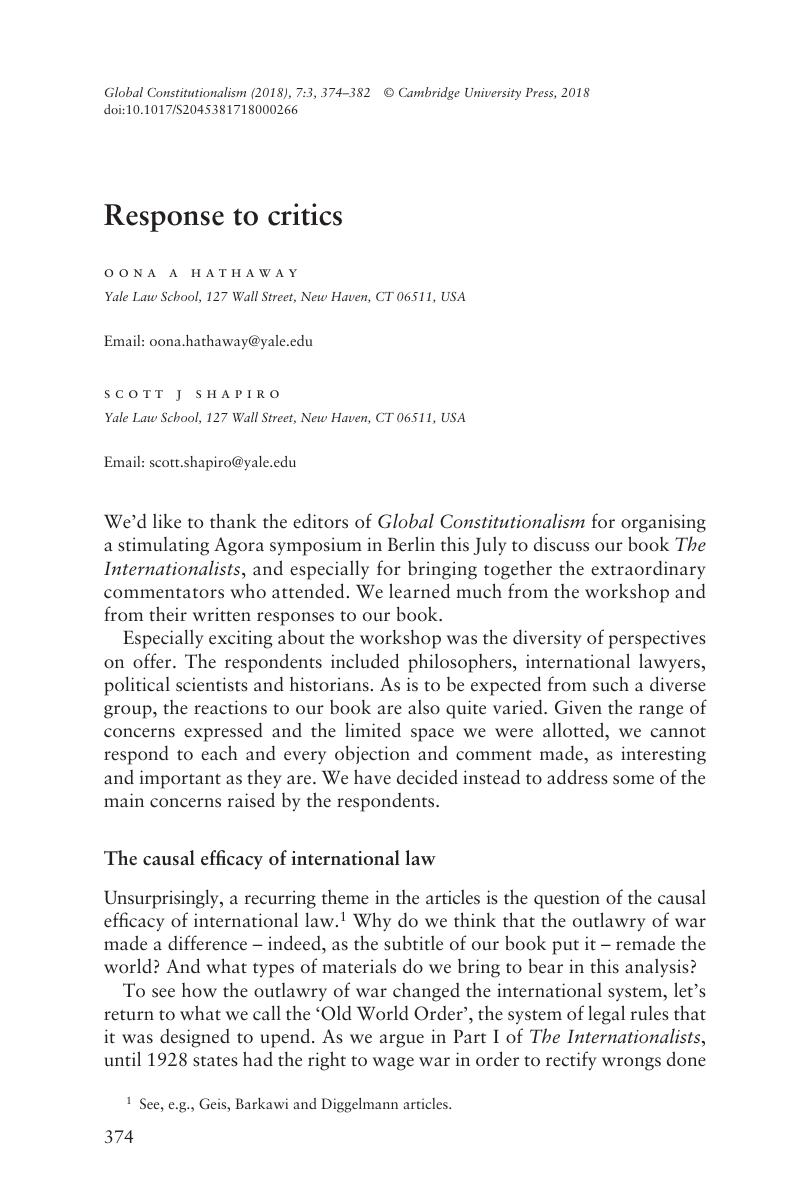Crossref Citations
This article has been cited by the following publications. This list is generated based on data provided by Crossref.
Baron, Ilan Zvi
Havercroft, Jonathan
Kamola, Isaac
Koomen, Jonneke
Murphy, Justin
and
Prichard, Alex
2019.
Liberal Pacification and the Phenomenology of Violence.
International Studies Quarterly,
Vol. 63,
Issue. 1,
p.
199.
WIENER, ANTJE
DUNOFF, JEFFREY L
HAVERCROFT, JONATHAN
KUMM, MATTIAS
and
KOVÁCS, KRISZTA
2019.
Global Constitutionalism as agora: Interdisciplinary encounters, cultural recognition and global diversity.
Global Constitutionalism,
Vol. 8,
Issue. 1,
p.
1.


